| Writing a 28th Amendment to Save Our Democracy ... back > |
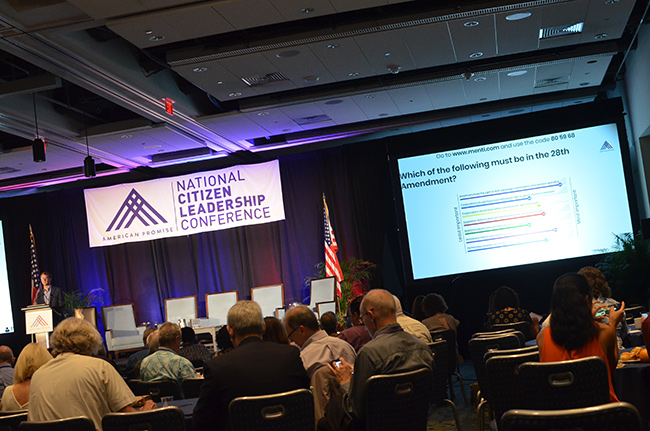 |
| June 24, 2018 - Concern about
the role of big money in American politics is nothing new, but the
Supreme Court's decision in Citizens
United, the landmark 2010 ruling that allows corporations and
unions to spend money to support or oppose candidates in elections, has
raised the ante. A number of organizations have proposed
constitutional amendments which would rein in big money. American
Promise, an organization formed in 2016, held a three-day conference at
the Washington Hilton to consider "What should a 28th Amendment really
look like." American Promise is holding a series of town halls
over a period of 18 months to inform Americans and help them to address
this question. |
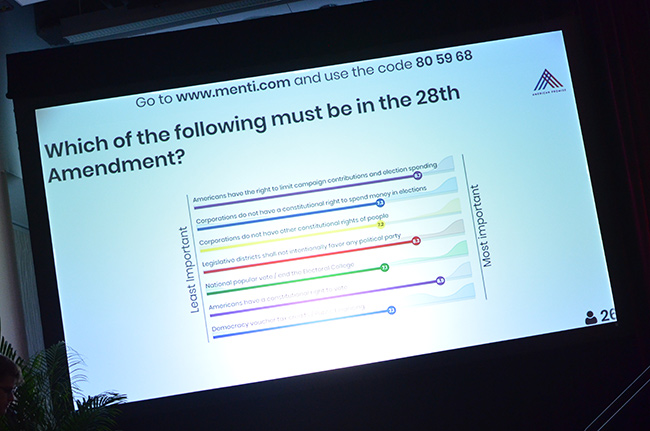 |
| An online poll gauged attendees'
views before and after the discussion. Here the question was,
"Which of the following must be in the 28th Amendment?" - Americans have the right to limit campaign contributions and election spending - Corporations do not have a constitutional right to spend money in elections - Corporations do not have other constitutional rights of people - Legislative districts shall not intentional favor any political party - National popular vote / and the Electoral College - Americans have a constitutional right to vote - Democray voucher tax credits / Public Financing |
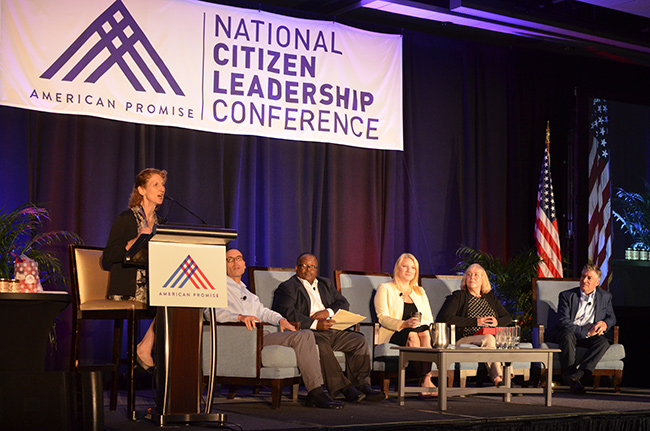 |
| Caroline Frederickson, president
of the American Constitution Society, moderated a plenary session on
"Writing the 28th Amendment: Every American Can Help."
Participating were Adam Winkler, a professor of constitutional law at
the UCLA School of Law; Greg Moore, executive director of the NAACP
National Voter Fund; Elizabeth Wydra, president of the Constitutional
Accountability Center; Ellen Greene Bush, a member of American
Promise's Port Clinton (OH) chapter; and Jeff Clements, president of
American Promise. |
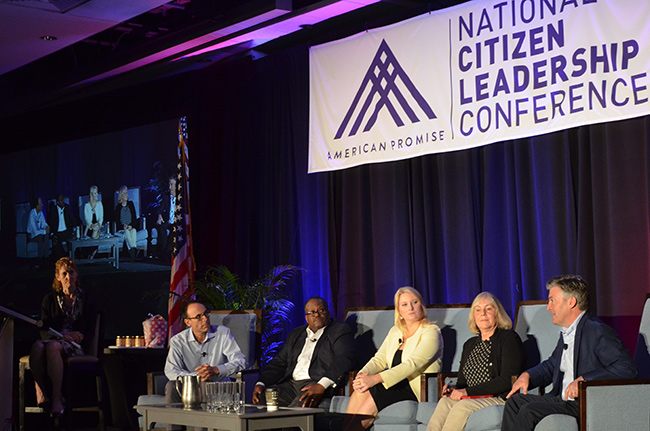 |
| A core criticism of the Citizens United decision it grants
corporations rights to free speech that many believe are reserved for
actual people, i.e. corporations are not people. Winkler provided
useful context in his remarks, noting that there is "a two hundred year
history of corporations going to the U.S. Supreme Court and claiming
rights." Further he said that it is important to think about the
question in a nuanced way. There are different kinds of
corporations and different kinds of rights. Wydra stated, "The
Supreme Court majority in Citizens United got it wrong." She said
that while some expected the Court might engage in a "clean up
operation," that seemed unlikely and "we must look at the hard work of
amending the Constitution." Moore addressed the question of
whether, in view of Supreme Court decisions in Shelby Co. v. Holder and Husted v. APRI, a 28th Amendment
should include a right to vote. Greene Bush, the activist from
Ohio, gave personal testimony describing the "onslaught on Lake Erie by
corporate forces outside our control." She asked whether the
rights of corporations supersede our rights. Clements spoke to
the promise that we are all created equal, emphasizing that, "Political
equality is the core of the Constitution." |
 |
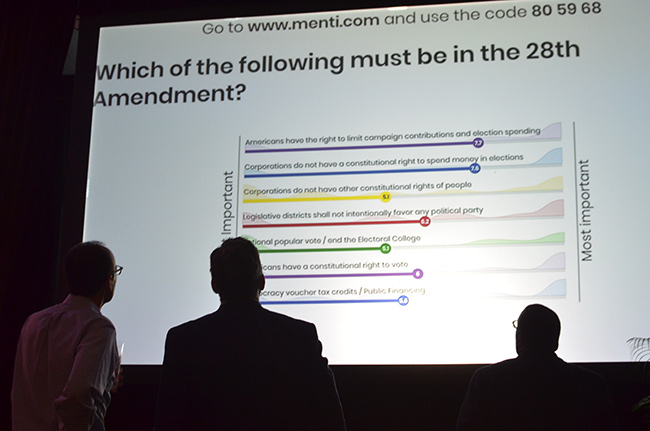 |
more information: American Promise see also: Citizens Take Action |
| back > |

